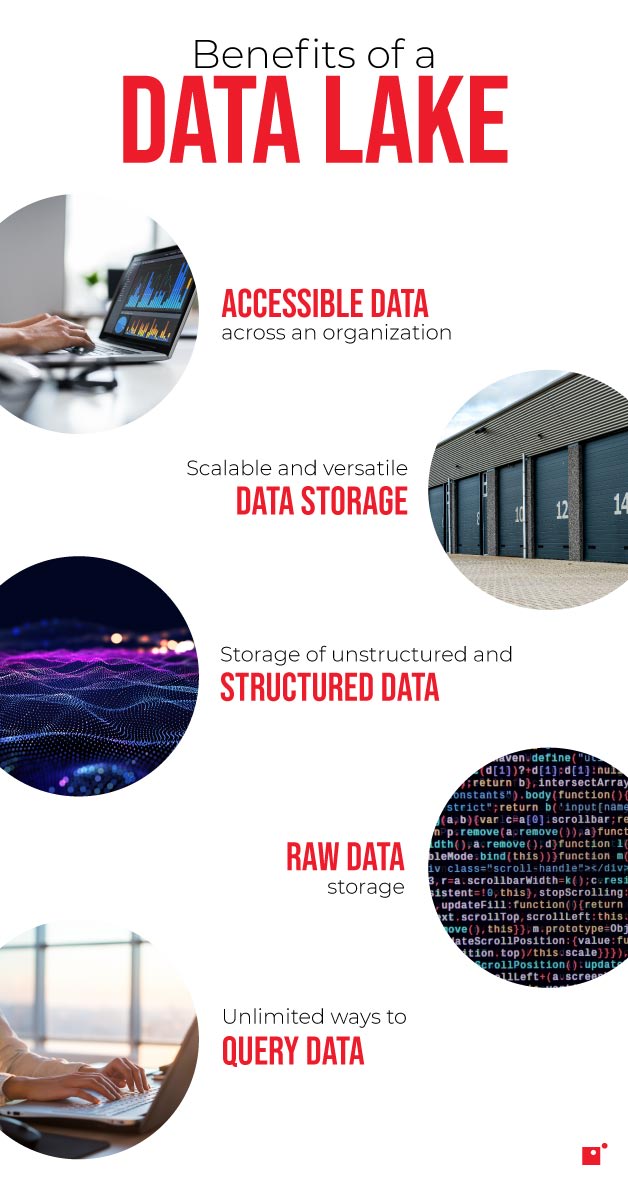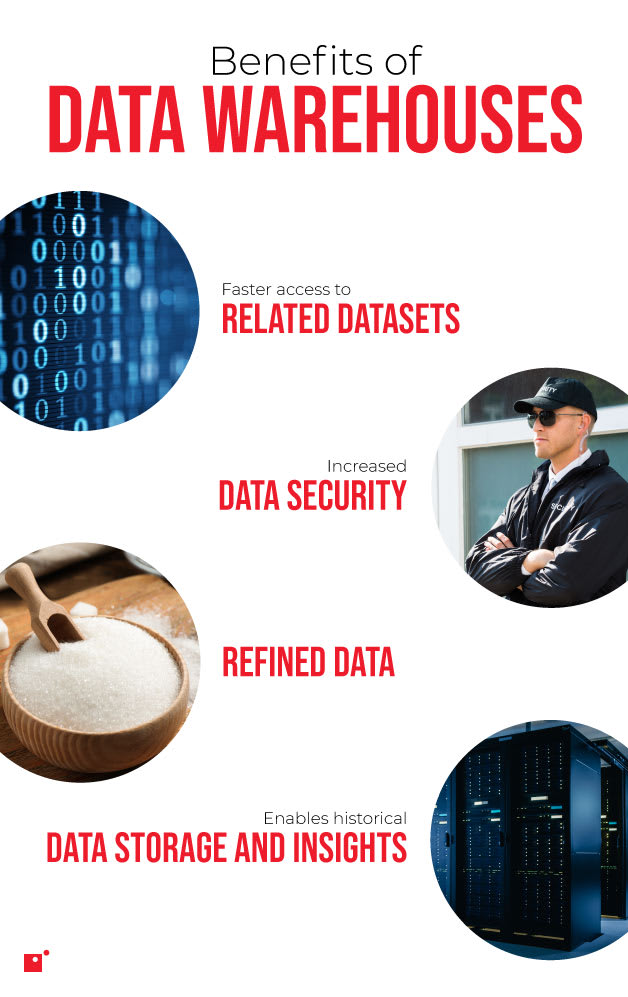When it comes to comparing a data lake vs data warehouse, it’s important for businesses to understand the difference, because data storage has become a critical element for businesses as they begin to collect, use, and lean on more data.
Learn more about what storage solution is right for businesses and what the difference is between a data lake and a data warehouse.
What is a Data Lake?
A data lake is a data storage repository that has the ability to store huge amounts of structured, semi-structured, and unstructured data. It’s a data storage solution that’s designed to hold data in its native, raw form.
The main benefit of using a data lake for data storage is its ability to improve the analytical use of data by offering a large quantity of data that can be used in building reports for decision making.
What is a Data Warehouse?
A data warehouse is a strategic data storage solution that holds collected and refined datasets that have been given an intended purpose. The data stored in a warehouse has been structured a specific way to provide meaningful business insights and analysis. In other words, a data warehouse holds information while a data lake holds raw data.
The Key Differences Between a Data Lake vs Data Warehouse
When discussing the difference between data lakes and data warehouses, it’s important to note that no one solution is always one-size-fits-all and there is no ‘winner’ between the two. They serve different purposes and have separate benefits. In fact, they oftentimes work together with a data lake feeding into a data warehouse and holding data until it’s ready to be structured, refined, and stored.
Here are some of the key differences between data lakes and data warehouses:
- Data lakes store all data no matter the source, file type, data type, or other variables. A data warehouse stores data as quantitative metrics that can be used for analysis.
- A data lake defines the uses of data after data is stored there while a data warehouse stores data with an already defined purpose.
- Data lakes utilize an ELT (Extract Load Transform) process while data warehouses use ETL (Extract Transform Load) processes.
Essentially, data lakes are helpful for businesses and people who need access to all information and in-depth analysis while data warehouses are better for people who require quicker, easier access to certain information that has been refined and reported in a simpler way.
Related: 3 Big Data Analytics Examples That Can Help Your Business
A helpful way to think about the uses of data warehouses is to imagine a basement full of stuff. Sporting equipment, clothes, boxes, toys, and anything else you can think of that would be put there. To clean it up, you could put these items into different closets organized for specific purposes. For example, you could take golf balls and put them into a golf-specific closet where it’ll be used for golfing. But you have other options, too. The golf ball could be put into a broader categorical closet like “sports” or “balls.”
No matter what closet you put the golf ball in, it doesn’t change what it is, just how it’s being used. All the items in the room can be sorted, but they remain in a pile on the floor until they are. The pile on the floor is a data lake—an unstructured place to store items (data)—and the closets would be your data warehouses—a place to store structured items (data) with an assigned purpose.
Which Does Your Business Need?
Deciding which one is right for your business often comes down to your data needs and who will be accessing the data. Oftentimes, data lakes and data warehouses work together with the lake storing data until it can be used in a dataset that will be stored in a data warehouse. A new term that has risen up lately is a data 'lakehouse' which combines many benefits of both into a unified platform.
Related: What is the Difference Between Big Data and Business Intelligence?
Deciding between these two data storage solutions also can depend on industry and business type. Industries that collect huge amounts of data, like healthcare, might find more success in using data lakes. But, in finance, data needs to be accessed by advisors, clients, and other users without deep data science backgrounds so a data warehouse is a better solution.
In Conclusion
When thinking about a data lake vs data warehouse, think about the many unique benefits they bring to the table for businesses that collect and use a lot of data. From the large-scale storage of raw data in a lake to the refined dataset storage of a warehouse, both provide helpful ways for businesses to use more insightful data in their day-to-day decision-making.
Learn more about what it takes to become a data-driven company in our on-demand webinar Modern Business Requirements: How to Become a Data-Driven Company. Access the on-demand replay here.


